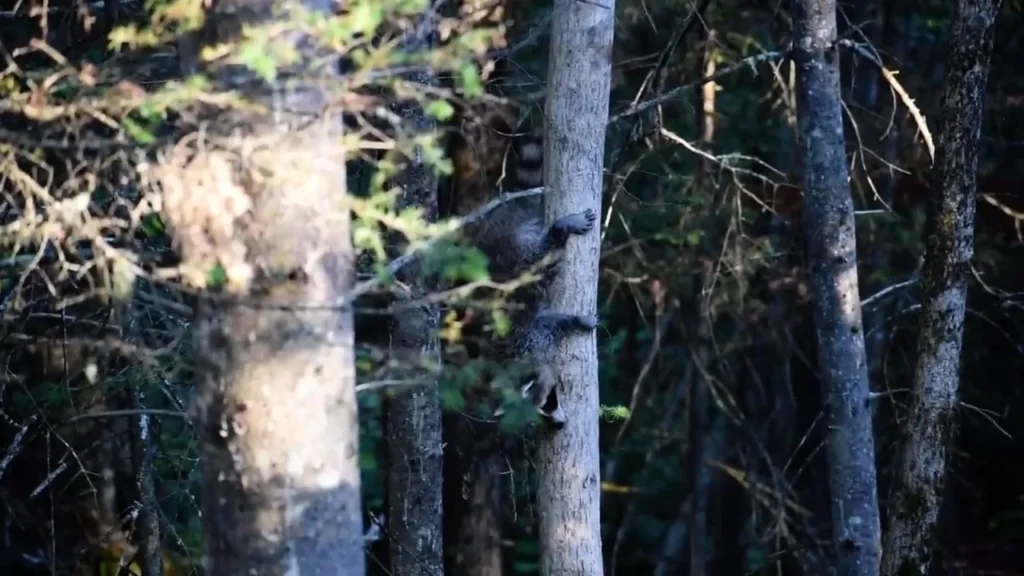The question of whether it is permissible to kill raccoons in New Hampshire is one that arises in discussions surrounding wildlife management, pest control, and ethical considerations.
Raccoons, known for their adaptability and often seen as both a nuisance and a natural part of the ecosystem, have prompted inquiries about their treatment in the state.
In this article, we will delve into the regulations, legal aspects, and ethical dimensions surrounding the removal of raccoons in New Hampshire.
Whether you’re a resident curious about the rules governing raccoons or someone facing raccoon-related challenges, this exploration will shed light on the intricacies of dealing with these masked mammals in the Granite State.
Is It Possible to Kill Raccoons in New Hampshire

In New Hampshire, trapping and euthanizing raccoons is permitted, but it is subject to specific hunting and trapping seasons. Nighttime hunting is allowed, but only with firearms not exceeding .22 caliber or shot size larger than number 4 birdshot.
When trapping, it’s advisable to use cage or box traps, especially in populated areas or where free-ranging pets are present.
It’s essential to be aware that raccoons are potential carriers of rabies and raccoon roundworm. Breeding females typically give birth to three to five cubs from April to July.
If you encounter raccoon-related issues, seeking professional assistance from a wildlife removal service is recommended for safe and humane removal.
Raccoon Hunting Season in New Hampshire
According to the New Hampshire Fish and Game Department, raccoons are subject to designated hunting and trapping seasons for their fur within the state. These seasons typically span from October to December and allow for nighttime hunting.
However, it is strictly prohibited to employ a rifle or pistol exceeding .22 caliber or to use shot sizes larger than number 4 birdshot.
It is strongly advisable to always consult the New Hampshire Fish and Game Department for the latest, accurate information.
For additional information you can refer to our guide on ‘How to get rid of Raccoons.’
Best Practices for Disposing of a Dead Raccoon in New Hampshire
Here are recommended best practices for the proper disposal of a deceased raccoon in New Hampshire:
- Public Property or Road: If you encounter a dead raccoon on a public road or property, promptly contact your local animal control officer or the City of Manchester for free dead animal removal services.
- Private Property: When a dead raccoon is on private property, the responsibility for its disposal falls on the property owner.
- Protective Measures: Prior to handling a deceased raccoon, it is essential to wear gloves and protective clothing to minimize the risk of exposure to potential diseases or parasites. Avoid direct contact with the raccoon and any bodily fluids.
- Legal Disposal: Referencing New Hampshire Revised Statutes Section 436:17, it is stipulated that carcasses should be either burned, covered with lime and buried, or transported to a fertilizer facility for disposal.
- Professional Assistance: If you are unable or uncomfortable with disposing of the dead raccoon yourself, it is advisable to contact a professional wildlife removal service with expertise in proper disposal procedures.
For further information or specific guidelines related to disposing of dead raccoons in New Hampshire, please consult the relevant authorities or regulations.
Risks of Killing Raccoons in New Hampshire
Understanding the Risks of Killing Raccoons in New Hampshire:
- Health Risks: Raccoons are carriers of diseases like rabies and raccoon roundworm, which can pose risks to both humans and pets through exposure to bodily fluids.
- Ineffectiveness: Eliminating raccoons by lethal means may not be the most effective solution to a raccoon problem, and it can be hazardous and inhumane.
- Compliance with Regulations: Raccoons have designated hunting and trapping seasons in which their removal is allowed. It’s crucial to adhere to these regulations and employ safe and humane methods when addressing raccoon issues.
- Professional Removal: To ensure both safety and humane treatment, it is strongly advised to seek the assistance of a professional wildlife removal service when dealing with raccoon problems.
- Long-Term Solutions: Killing raccoons may not provide a long-term solution, as other raccoons may simply occupy the vacated area, leading to similar problems.
- Protective Gear: Always wear personal protective equipment (PPE) when handling raccoons to minimize the risk of contracting diseases or parasites.
Understanding these risks and exploring alternative approaches to raccoon management in New Hampshire can lead to more effective and ethical solutions.
Alternatives to Killing Raccoons in New Hampshire
Consider these alternatives to killing raccoons in New Hampshire:
- Trapping and Relocating: Effectively remove raccoons from your property by trapping and relocating them. Ensure strict adherence to regulations and employ safe, humane methods.
- Attic Decontamination and Repair: Prevent raccoons from entering your home by utilizing attic decontamination and repair services.
- Eliminate Food Sources: Deter raccoons from your property by removing potential food sources, such as bird feeders.
- Cylindrical Foothold Traps: Use cylindrical foothold trap designs designed specifically for raccoons to reduce the risk of capturing non-target animals.
- Legal Trapping: In cases where raccoons have killed livestock or become a nuisance, legal trapping is permitted in New Hampshire. Always adhere to regulations and prioritize humane methods.
- Mouse Traps with Bait: Employ mouse traps baited with fruit or peanut butter as an effective means of trapping raccoons.
Remember, if you encounter raccoon-related issues, it is advisable to engage a professional wildlife removal service.
They possess the expertise required for safe and humane raccoon removal, ensuring both your safety and the well-being of the animals.

